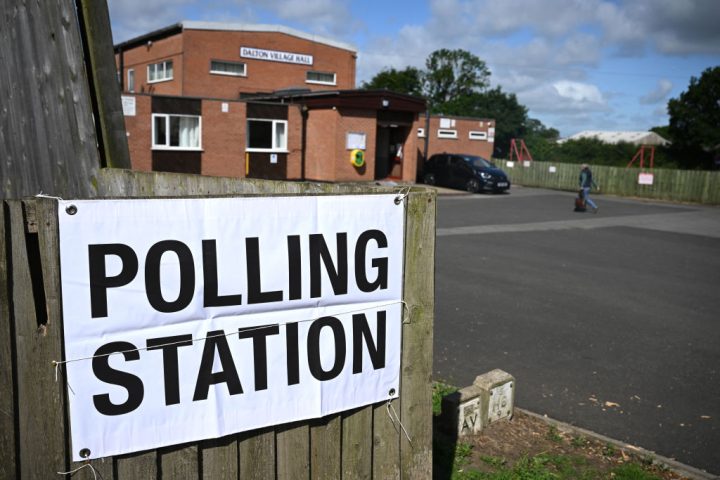It’s time to decolonise Britain. And no, I’m not talking about tearing down statues of Victorian imperialists, or running roughshod over the school curriculum with self-flagellating historical revisionism. Instead, I’m talking about the fact that more than two billion people worldwide have the automatic right to vote in British elections, thanks to an archaic feature of our post-colonial citizenship laws.
Ludicrous as this might sound, Commonwealth citizens – that is, citizens of any of the Commonwealth’s 56 member states – enjoy automatic voting rights in the UK, whatever their reason for settlement in the UK and regardless of their intention to seek citizenship. When the ballots are finally tallied at this year’s election, hundreds of thousands – potentially millions – of foreign citizens will have participated, diluting the democratic rights of British subjects in the process.
The right to vote enables those with a stake in society to have an influence over how it is run
The reason for this absurd loophole lies not in national masochism, but in the messy and asymmetric end of Britain’s empire. Before the second world war, residents of Britain’s overseas dominions were legally British subjects, enjoying the same rights as those born in the home islands. But, as global realities shifted post-war, those dominions – reconstituted as ‘the Commonwealth’ in 1947 – began to drift away from the mother country, creating a need to reform citizenship rules.
In 1948, the British Nationality Act drew a distinction between British subjects and Commonwealth citizens, but still afforded generous rights to the latter group, including the automatic right to vote and settle in the UK. At the time, Britain enjoyed close cultural, political, and economic ties with its former dominions, such as Canada, Australia, and South Africa. The number of Commonwealth citizens living in the UK was small, and most of those citizens shared close ties of culture and kinship with their British neighbours; allowing them to participate in British elections was a low-impact way of ensuring the continued cohesion of the post-war Anglosphere.
More than seven decades on, this post-colonial hangover remains, preserved by a mixture of inertia and sentimentality. After decades spent tethered to Brussels, Britain has deemphasised its Commonwealth ties. The old club has changed shape dramatically since its inception, growing from a small club of settler colonies into a sprawling international community of fifty-six states, some of which were never colonised by Britain at all. The cultural ties are now thinner, the number of Commonwealth citizens far larger, and yet governments of both parties have refused to review these rules. For a certain sort of Briton, our fraying ties to the Commonwealth represent a valuable connection to the glorious past, which ought to be maintained regardless of changing global realities.
Only a handful of small Caribbean states, including Jamaica and Antigua, retain automatic suffrage for Commonwealth citizens. In New Zealand, Commonwealth citizens lost the automatic right to vote in 1975 and in Australia, the right was rescinded in 1984. In countries like India and Nigeria, Commonwealth citizens never enjoyed special suffrage rights. Amongst large Commonwealth states, Britain is the outlier in extending suffrage rights to all Commonwealth citizens.
At a fundamental level, the right to vote enables those with a stake in society to have an influence over how their society is run. Democracy functions best when predicated on a high-trust society, in which participants share some degree of cultural and ethical commonality. When we extend that right to people who come to this country, we should do so carefully, in the knowledge we are giving them a stake in how our society is run – extend that right too widely, and we risk undermining those common touchstones that make British democracy so successful.
In the face of historically unprecedented mass migration, much of which originates from Commonwealth countries such as India, Nigeria, and Bangladesh, continuing to allow Commonwealth citizens to vote risks upsetting the delicate balance of British democracy and enfranchising those with neither a stake nor an interest in the success of our society.
What’s more, we risk adding fuel to the growing fire of sectarian political campaigning, in which candidates appeal directly to voters from particular ethnic or religious backgrounds. This year’s general election has seen the emergence of Muslim advocacy groups, Hindu and Sikh manifestos, and an explicitly Yoruba political party in south London. Introducing hundreds of thousands of new voters a year, most of them culturally distinct from the British mainstream, is likely to exacerbate this problem, turning our politics into a zero-sum competition between different identity groups.
Forget Labour’s plans for votes at sixteen – there’s a far bigger suffrage scandal already underway. We simply can’t afford to let post-imperial nostalgia about our Commonwealth compatriots cloud our judgment. At a time when Britain is already struggling under the enormous pressure of sectarian voting, it’s time to end the scandal of Commonwealth citizen suffrage once and for all.







Comments